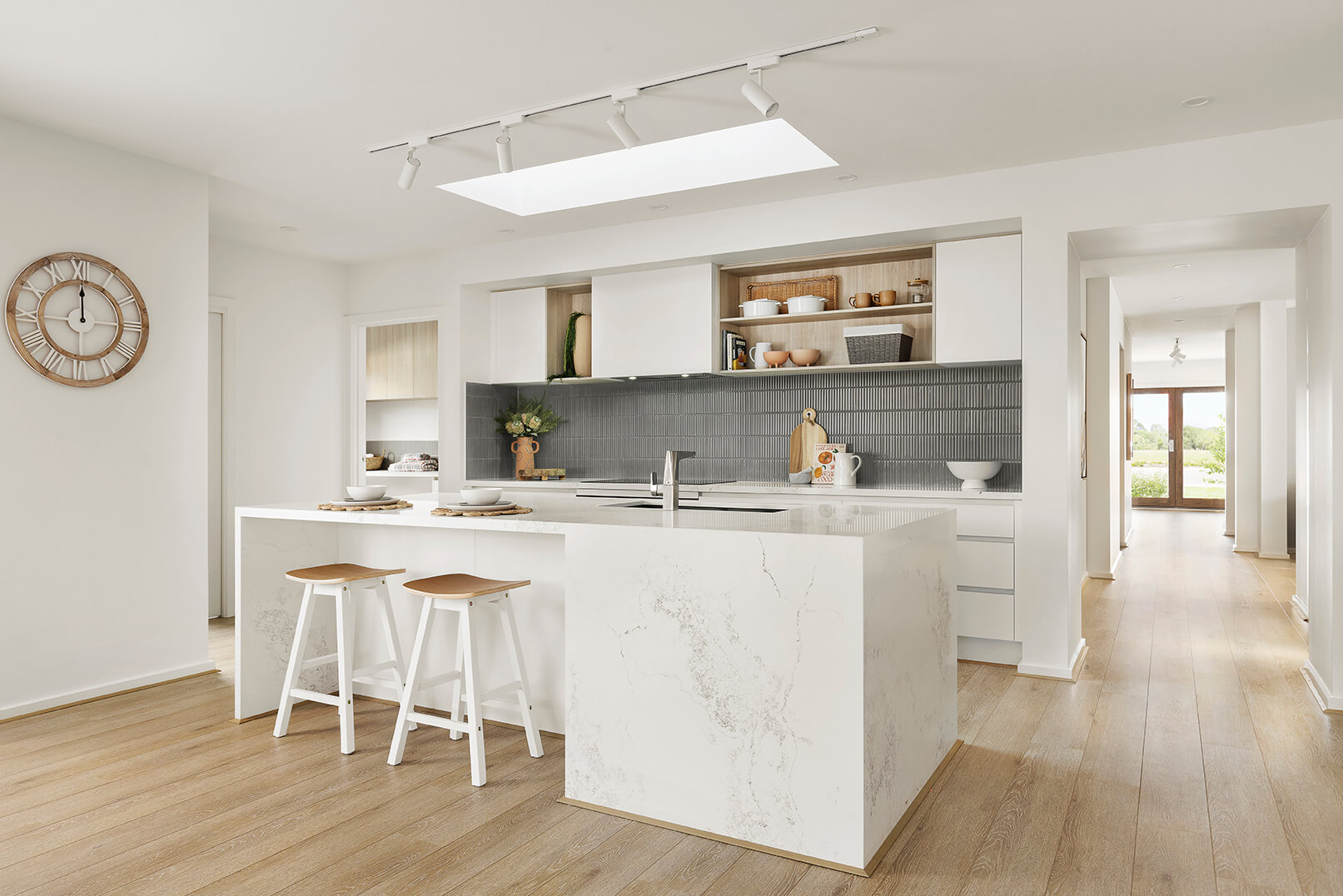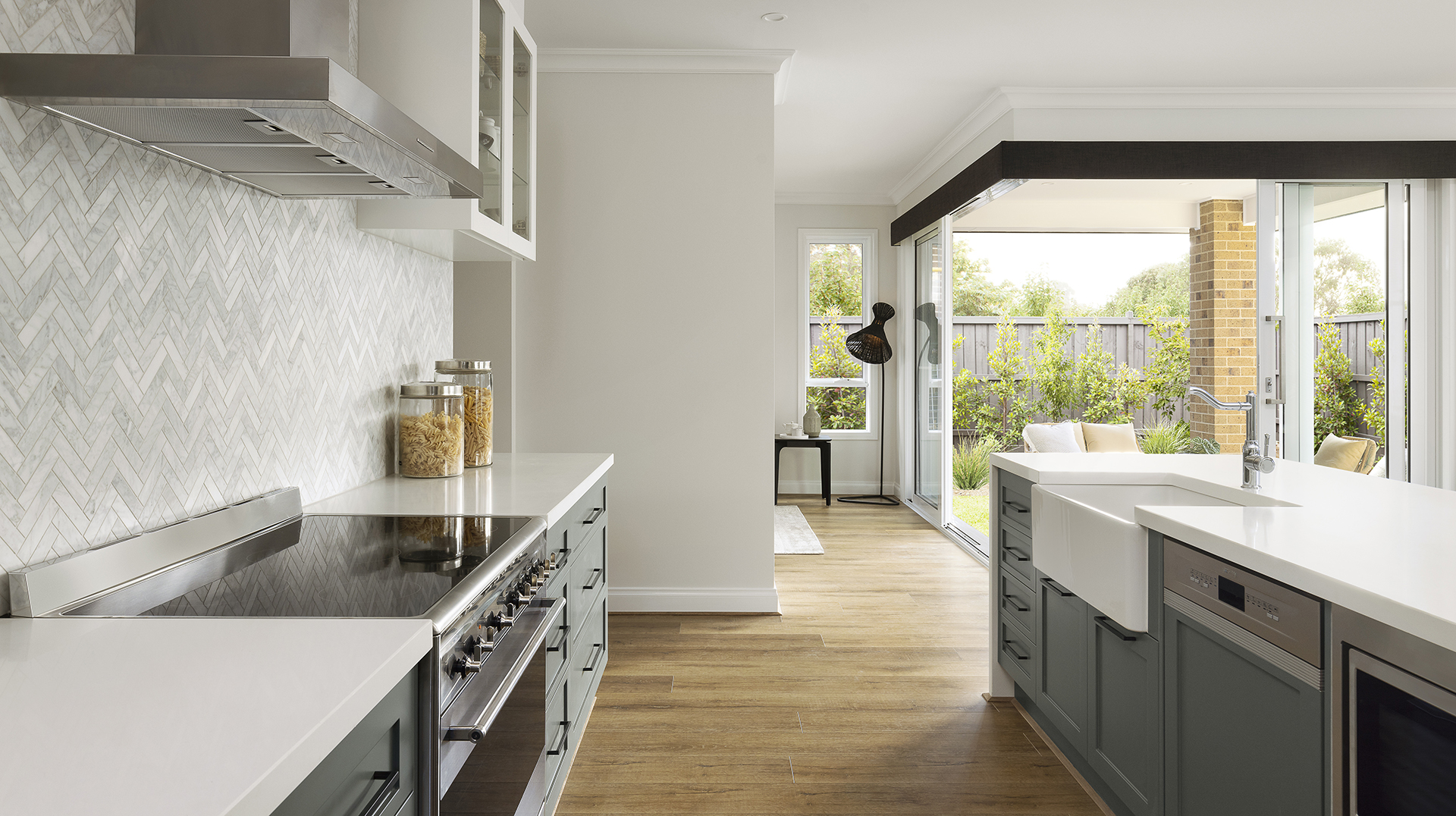The National Construction Code’s 2024 Changes In Victoria

New homes will be more accessible and more cost effective to heat and cool as the latest National Construction Code (NCC) comes into effect for Victoria on 1 May 2024. Houses built after 1 May require a 7-Star energy rating, wider doors and halls, and a toilet and shower that is deemed accessible.
Take advantage of our Runout Sale where you can Beat The New Construction Code Price Rise.
Dennis Family Homes has been adapting the entire range of home designs to comply with the changes since they were first announced by the Australian Building Codes Board in 2022. Customers building homes under the new code can continue to expect a seamless building experience.
Over the past two years the Dennis Family Homes design team has been progressively incorporating these known changes into our supply chain, product range, and building practices.


NCC changes for new homes built in Victoria:
Accessibility
- There must be a toilet on the ground floor. This toilet must have 1200 mm of clear space in front of it which must not be disturbed by the toilet/bathroom door swing.
- Houses need to have at least one shower, where the entrance is flat, without a step in or out.
- Additional timber in the wall frame to support the future installation of grab rails if they are ever desired to be installed.
- Some doorways must be wider and have a level threshold for ease of access.
Energy efficiency
- 7-Star rating is now standard, increased from 6-Star. This will assist in lowering heating and cooling consumption and bills overall, depending on your energy use and appliances, at different times of the year.
- Electric appliances, like hot water services, that are able to run off rooftop solar panels.
- Overall more insulation in new homes.
- Use of more thermally efficient windows, such as double glazing and even thermally broken double-glazed windows. Thermally broken means the aluminum window frame on the exterior and interior don’t connect. The thermal bridge between the two frames is broken.
Condensation mitigation
- Detail changes to remove damp air from the home, and ventilate the roof space. As homes have become better at avoiding drafts to improve energy efficiency, the trapped moist air can cause mould.
Dennis Family Homes’ National Design Manager, Kelvyn Rowley, said the changes might seem subtle at first. “Virtually every wall has moved in our designs to accommodate the changes. The whole theory of this is to have a more energy-efficient home and also increase the longevity of the home in that it is capable not only for current needs but future needs of anyone living there. Homes built after 2024 would be more friendly to people on crutches or getting a pram inside, and elderly residents or visitors with walking frames. As well as being good for access, the wider doorways will also be good for when you’re moving furniture within your home,” Kelvyn said.

How will this affect construction costs in Australia?
There is a cost impact that differs, depending on the home design, and some of these changes will save money in the long term.
Energy-efficient homes are more cost-effective to heat and cool as climate control appliances are needed less often.
Get more information:
- Factsheet: 7 star energy efficiency building standards – Victorian Government Department of Energy, Environment and Climate Change
- Victorian Building Authority – National Construction Code (NCC) 2022
- Housing Industry Association: NCC 2022 – National Construction Code
- Video: Housing Industry Association NCC 2022 Changes for VIC – What does it mean for me as the builder?
Sources
https://www.energy.vic.gov.au/households/7-star-energy-efficiency-building-standards
https://www.vba.vic.gov.au/building/regulatory-framework/ncc-2022
